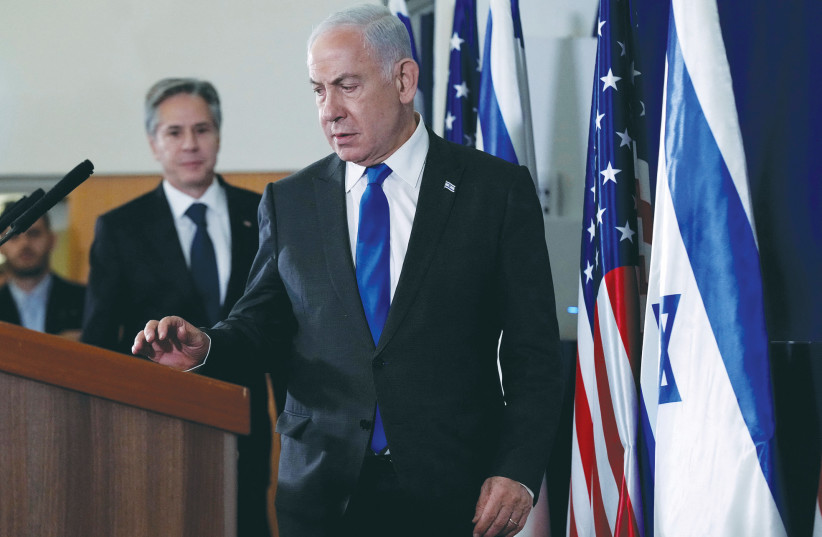In a report titled “Monthly Israeli Society Index” by the Jewish People Policy Institute (JPPI), findings show that the American government and Israeli civilians are at odds. The findings could forecast a widening gap in coordination and cooperation between the United States and Israel.
Among Jewish Israelis, there is limited consensus on what Gaza should look like after the war, with only 5% agreeing with the American proposal that the Palestinian Authority should control Gaza with other Palestinian leadership.
Among the same group, 36% believe that Israel should establish control over the entire Gaza Strip, and 26% support the reconstruction of the Gush Katif settlements within Gaza.
Among Jewish opposition voters, only 9% want to give the PA a role in Gaza "the day after," and 51% of coalition voters want to rebuild Gush Katif settlements, while 3% of opposition supporters agree.
Only 44% of Israeli Jews are willing to give Palestinians any form of control. Among opposition supporters, 39% support Palestinian self-rule, although not in the hands of Hamas or the Palestinian Authority.

Among Coalition supporters, 18% agree. While others, if they do not want full Israeli control, prefer the rule of a strong nationalist power.
Opening a second front against Hezbollah
The survey also indicates that 44% of the Jewish Israeli public believes that Israel should open a second front against Hezbollah as soon as possible, in contrast with the American government’s position that aims to prevent a wider confrontation with Hezbollah. Amid coalition supporters, that number rises to 60%.
In recent weeks, the Americans have declared their opposition to a war against Hezbollah at this time and are trying to promote a solution in Gaza that will integrate an "upgraded" Palestinian Authority, to create a political horizon for peace.
Professor. Yedidia Stern, President of JPPI commented on the results saying, "The United States is a close friend of Israel, and without its support, Israel will find itself in a less favorable situation. However, as between friends, it is appropriate for the Americans to listen to the voices coming from Israel. The actions, both in the north and in Gaza, need to be conducted and promoted through agreement, as is customary between friends. American Jews can also play a significant role."
The Arab Israeli position is significantly different than the Jewish-Israeli position. Concerning the northern border, 44% of Israeli Arabs prefer an internationally supported agreement to resolve the crisis. This group agrees with 34% of Jewish respondents. Only 8% of Arab respondents believe Israel should go to war in the north.
A small number of Israelis, including both Arab and Jewish (17%) support finishing the war in Gaza and waiting for a future opportunity to strike Hezbollah.
This survey was conducted with the participation of 700 Jewish-Israeli respondents and 200 Arab Israeli respondents.
The data was analyzed and weighted by Professor Camil Fuchs to achieve a representative sample of Israel’s adult population, with analysis by JPPI’s Shmuel Rosner and Noah Sleptov.
